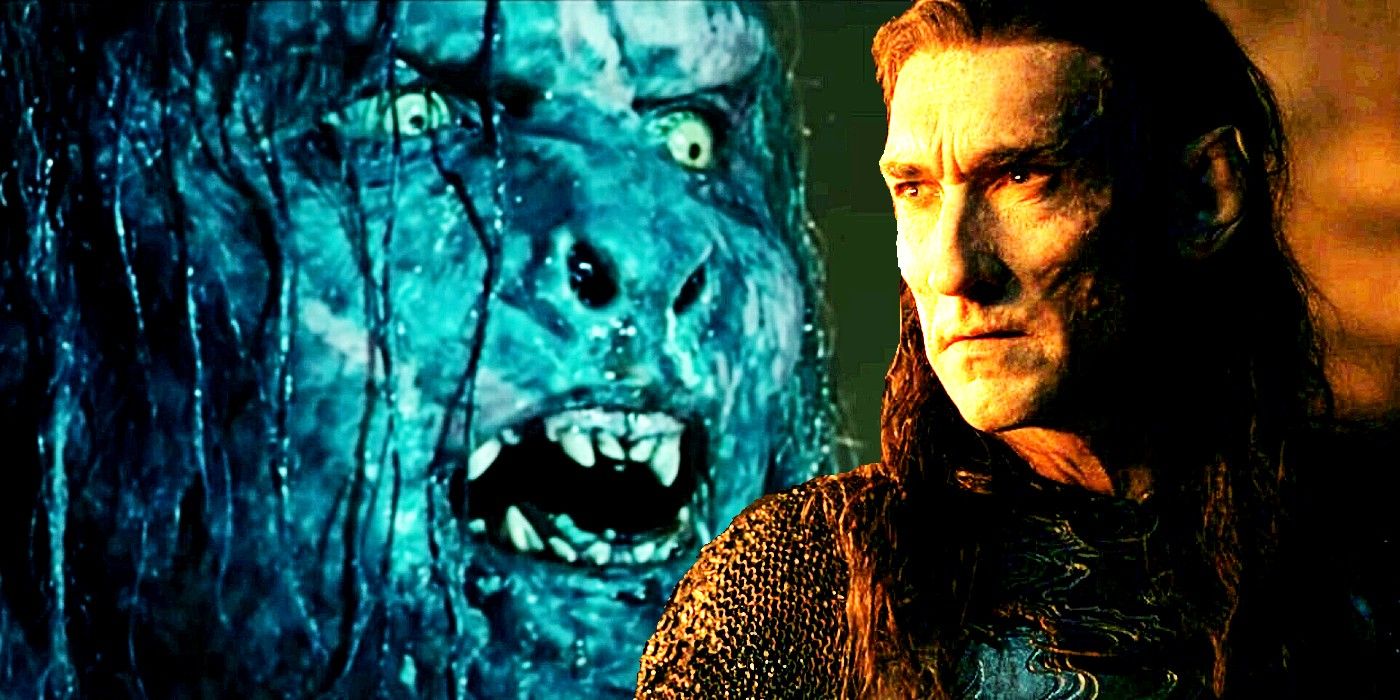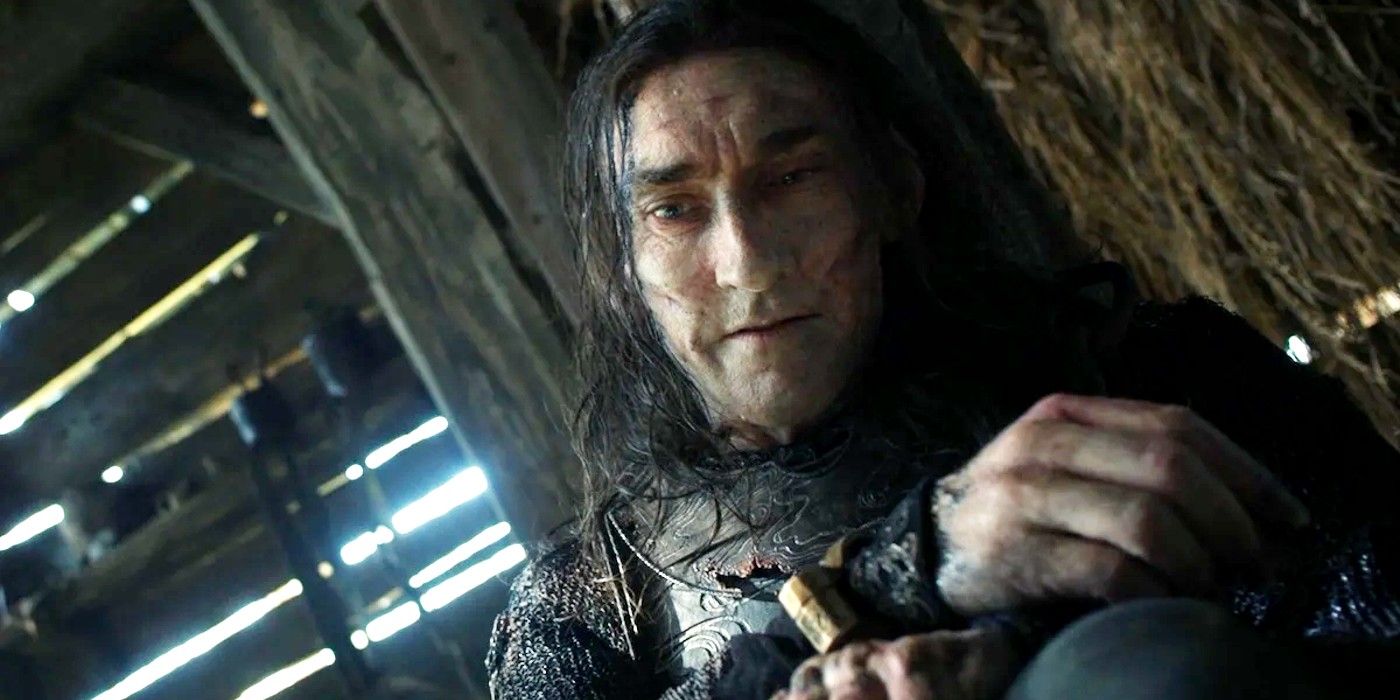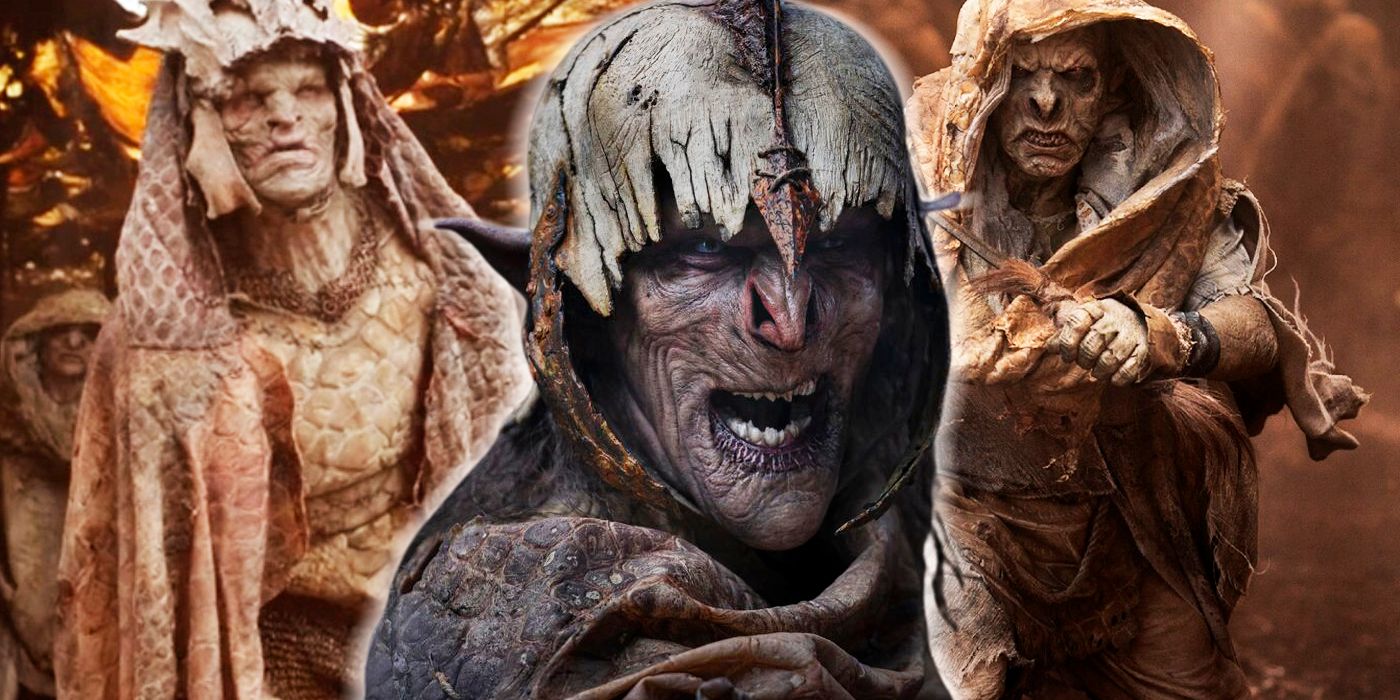The following contains spoilers for The Lord of the Rings: The Rings of Power Season 1, Episode 6, "Udûn," now streaming on Prime Video.
The Rings of Power has been rapidly building to an unavoidable conflict in the Southlands. By the end of Season 1, Episode 5, "Partings," all the pieces were in place. Arondir and the villagers, Adar and the Orcs and the newly purposeful Galadriel with her Númenórean soldiers were all where they were supposed to be. That meant that to fans' delight, Season 1, Episode 6, "Udûn" was a solid hour of high-stakes fighting.
The episode started with Arondir getting the better of a group of Orcs at the abandoned Tower of Ostirith. Arondir and the villagers defeated the first wave of Adar's attack at Tirharad. The Orcs would have defeated the villagers with their much larger second wave, but Galadriel arrived to save the day with her Númenórean reinforcements. When they showed up, Adar saw his impending defeat and fled, only to be captured by Halbrand and Galadriel. As the episode neared its end, Galadriel interrogated Adar and found out the truth about the fallen Elf's origins... which is where the trouble started.
Adar Was One of the Moriondor
When Galadriel interrogated Adar, she already knew what he was. Recalling a story from her childhood, she called him "Moriondor," which meant "sons of the dark." According to Galadriel, the Dark Lord Morgoth had captured Elves during the depths of time and tortured them, creating a new and ruined form of life. From those fallen Elves came the Orcs. Even though Adar and the other Moriondor were originally Elves, they considered themselves Uruks -- Black Speech for Orc.
While the term Moriondor isn't found in any of J.R.R. Tolkien's works, the concept of corrupted Elves is. In The Annals of Aman (1950), Tolkien wrote that Orcs were created when Morgoth corrupted Elves. Likewise, the Lord of the Rings film trilogy held that Orcs were descended from corrupt Elves. That's what Saruman told the captain of his fighting Uruk-hai. However, there's one massive problem that arises if Orcs are descended from Elves.
Orcs' LOTR Origins Are Heavily Debated
In The Lord of the Rings, Elves were depicted as immortal. If their bodies died, their souls lived on and went to a place called the Halls of Mandos, where they awaited the Dagor Dagorath and the end of the world. If Orcs are descended from corrupted Elves they should, in theory, also be immortal. Yet the Orcs seen in the movies and now the TV show are clearly not immortal, and their souls probably don't reside in the Halls of Mandos.
How does LOTR reconcile this discrepancy? In short, it doesn't. The original book trilogy implies that Orcs descended from corrupted Elves, but Tolkien later changed their origins. His subsequent ideas were that Orcs had been created either by corrupting soulless animals or men. But since that obviously wasn't in the first novels, fans regularly debate the answer. The Rings of Power is going with the story that's in The Lord of the Rings, and that makes sense. Yet the Orcs being descended from Elves opens a can of worms that some viewers will have problems with.
The Rings of Power streams Fridays on Prime Video.



